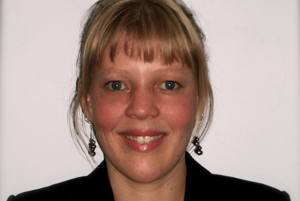
Preventing Body Dissatisfaction & Eating Disorders By Teaching Them Young
 New research funded by Australian Rotary Health (ARH) suggests that a new program for parents of preschoolers is effective in improving children’s attitudes towards their bodies.
New research funded by Australian Rotary Health (ARH) suggests that a new program for parents of preschoolers is effective in improving children’s attitudes towards their bodies.
Dr Laura Hart from La Trobe University was awarded the ARH Colin Dodds Postdoctoral Fellowship to test the effectiveness of the Confident Body, Confident Child (CBCC) program for children, parents and early childhood professionals.
“Confident Body, Confident Child is a program for parents of preschoolers about how to teach 2-6 year olds about healthy eating, without negatively impacting body image,” Dr Hart said.
“We have a workshop and printed resources for the whole family – including grandparents – to help develop body confidence in young children.”
In Dr Hart’s first study, she evaluated the impact of the program on preschool children by gathering data through play-based interviews before and 6-months after their parents had received the intervention.
“Although we provide the CBCC program to parents only, we found a significant, positive impact on children’s negative attitudes about body weight (weight bias) and positive impacts on girls’ self-esteem. We hope that this will prevent future eating and weight disorders in these children as they grow up,” Dr Hart said.
Another objective was to find out whether delivering the intervention to parents via face-to-face or online videoconferencing made any difference. This was determined by asking parents to fill out questionnaires before, 6-weeks and 6-months after receiving the CBCC.
“Our first study also found that we can deliver the Confident Body, Confident Child program just as effectively via videoconferencing as we can face-to-face. This has been very helpful for health organisations delivering the program in Australia and the U.S during the COVID-19 lockdown.”
During her postdoctoral fellowship, Dr Hart also conducted a second study aimed to pilot test the feasibility of providing CBCC via Maternal and Child Health Services.
This study found that after attending CBCC training, nurses perceived the program as highly valuable, useful and easy to enact in their practice.
Nurses also experienced increased awareness of body image, improved confidence in addressing body image issues with clients, and positive changes in their own behaviour and practice.
They were also open to furthering their education and training and provided ideas on additional considerations for practice and broadening the target audience for wider CBCC dissemination.
“As a result of this research and its positive findings, I have been able to deliver CBCC training to organisations in Norway, the United States, New Zealand and Australia. These organisations now deliver the program to parents in their local communities,” Dr Hart said.
“The results of these studies provide important new directions for the Confident Body, Confident Child intervention, enabling wide dissemination and effective prevention of body dissatisfaction and eating disorders in early childhood.”
Confident Body, Confident Child is the first evidence-based program to exist to help parents develop positive body image from a young age – at exactly the time when children are developing their eating habits and forming their body attitudes for life.
Dr Hart has had a number of journal articles published as a result of this funding (see here) with an additional 13 in development.
Visit the Confident Body, Confident Child website here to find out about upcoming workshops.
To help fund more important mental health research like Dr Hart’s, please consider donating to our COVID-19 appeal. We have a goal to raise $200,000 before June 30, 2020. All donations are tax deductible.
Media contact: Jessica Cooper – [email protected]
